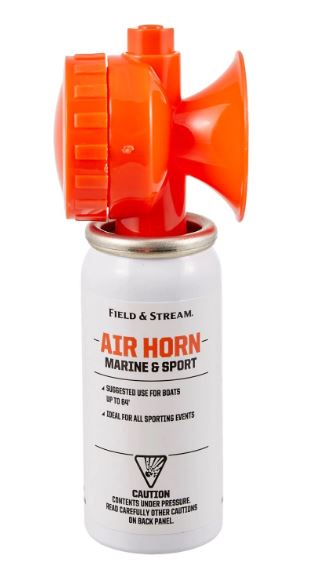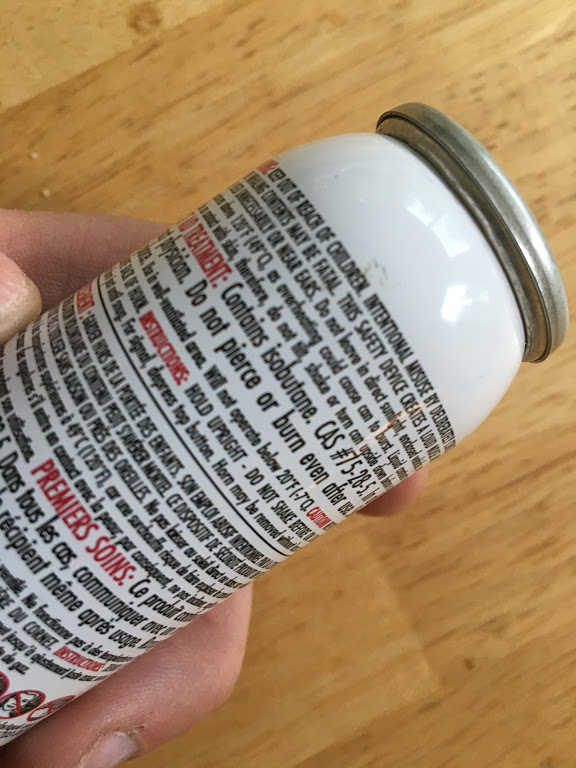Topic
Smallest possible butane-stove set-up?
Forum Posting
A Membership is required to post in the forums. Login or become a member to post in the member forums!
Home › Forums › General Forums › SuperUltraLight (SUL) Backpacking Discussion › Smallest possible butane-stove set-up?
- This topic has 77 replies, 17 voices, and was last updated 1 month, 1 week ago by
 Philip Tschersich.
Philip Tschersich.
-
AuthorPosts
-
May 28, 2019 at 9:11 pm #3595157
Back in March 2018, JohnK pointed out that the smallest little “air horn” for recreational boaters ($8-$12 at Walmart, Cabelas, WestMarine, etc):

have tiny little aluminum canisters with Lindal valves:
https://backpackinglight.com/forums/topic/94790/#comments (post #23)<span class=”Apple-converted-space”> which can be filled with butane and used with a BRS-3000T. Or other stoves, but really, what else but a 25 gram stove would you use with a 19 gram (empty weight) canister? Stealing John’s photo:

I got one, played with it, and am ready to take a deeper dive now.</span>May 28, 2019 at 9:11 pm #3595160First, the philosophical discussion:
Food and fuel don’t count in your base weight, right? But we include the bear bag, bear canister, food stuff sack as gear, just not the food. And we’d count the liquid-fuel bottle of a MSR white-gas Whisperlight stove, right? So should we count the container weight of our butane-mix (pressurized) liquid fuel?
As a practical matter, it IS weight that you have to carry until your next resupply (or this case, for the entire overnight trip).
So why carry a 94-gram, empty weight, 100-gram butane canister when there’s an option that is 1/5 the weight?
Second, the weights:
Horn with canister filled with 1,1-difluoroethane: 78 grams
Canister filled with 1,1-difluoroethane: 57.2 (horn was 20.8 grams)
Empty canister: 19.0 grams (only had 38.2, not “40 grams” of propellant)So empty with BRS-3000T is 19.0 + 25.1 = 44.1 grams versus anything else in which the lightest normal canister is 94 grams and most other stoves start at 70-80 grams. 44 grams is less than 170 grams. 74% less! 4.5 ounces less!
May 28, 2019 at 9:25 pm #3595166Third, the practicalities:
Yeah, it’s a tiny little base, so you’d need to prop rocks around it or bed the canister down into some soil, or wrap a sock around it and put it in your shoe (FrancoD’s idea).
Don’t feel bad about venting the 1,1-difluoroethane. It has an ozone depletion potential of zero, a low global warming potential (124) and a short atmospheric lifetime (1.4 years).
You’ll need a refilling valve to top it off from a butane mix (or propane! More on that later) canister. It should be the more cylindrical one ($12-ish) to fit down into the well without hanging up on the rim:

Because the boxy style ($30-40) does hang up on the rim:

Do all the usual refilling techniques: chill the receiving canister or slightly warm the donor canister. Never make/break a connection below a canister (you’ll lose a bit of liquid instead of a smaller bit of vapor). Work outside. Check your weights before you finish and vent any excess (a stove head works well for this).How much to refill it?
Based on its volume compared to a 450-gram canister, it should be fine with 33 grams of butane in it. But compared to the 1,1-difluoroethane in it originally (density 2.7) versus the lower density of butane (0.6) or propane (0.5) predicts 9 grams of butane or 8 grams of our typical butane/propane mix. 20 grams in it feels like there’s lots of headspace in there.
How strong is it? Plenty strong enough for a butane mix!
Based on its diameter and the amount of aluminum, I compared it to soda cans which have lots of data on them and estimated a burst strength of 600 psi which is a bit more than propane’s vapor pressure at 212F/100C and way over any butane-mix vapor pressure in any conceivable situation. Also, the vapor pressure of 1,1-difluoroethane is higher than butane or butane mixes, and close to that of propane.
So, would I feel safe with 27 grams of propane in it? Yes. They seem to have a wide safety margin in it with the 1,1-difluoroethane (these things bang around in boats for years in a salt-air environment and could be left in direct sun, or an enclosed boat cabin in the tropics). I’d only use propane for winter use because butane’s 20% higher density would give 20% more fuel weight and more BTUs for summer use.
May 28, 2019 at 10:35 pm #3595182Really cool David, thanks for sharing.
May 28, 2019 at 11:42 pm #3595189This is why I follow BPL. Nice healthful belly laugh.
I wonder what a bear would do if you let off that horn?
May 29, 2019 at 12:32 am #3595197Great post David.
Thanks.
May 29, 2019 at 1:12 am #3595204Outstanding! The perfect size for a weekend trip.
May 29, 2019 at 9:37 pm #3595324Jerry: an air horn is one of the two less-common bear deterrents I’ve seen carried with any frequency. The other being highway flares. On a hike with Wildlife Refuge personnel, one told me that they were required to carry one lethal and two non-lethal options (e.g. pepper spray, air horn and a 12-gauge loaded with slugs).
May 29, 2019 at 9:45 pm #3595326And, having boiled a number of liters of water with it, be warned: it’s got very little thermal mass and not much surface area so the canister cools quickly, especially when I used the dregs from an old butane canister (i.e. very butane-rich / propane-poor). Although just wrapping my hand around the canister fixed that.
So use a good winter-blend of butane/propane.
May 29, 2019 at 10:14 pm #3595330how well does the air-horn work with butane?
May 29, 2019 at 10:47 pm #3595332use it on a stove like this
 May 29, 2019 at 11:30 pm #3595338
May 29, 2019 at 11:30 pm #3595338I am seeing there is also a 3.5 oz canister from the same company (SHORELINE). 8oz too but that seems to be getting silly.
May 29, 2019 at 11:31 pm #3595339A long, long time ago……I made a small heater/ directional lantern using a bernzomatic pencil torch….just for the fun of it :-) These photos may have been posted here at bpl long ago.




Your little canister can be used for a DIY project :-)
May 30, 2019 at 12:06 am #3595344Ben: the air horn on a standard butane canister is pretty dang loud. Since the plastic horn itself is only 21 grams, if you’re carrying any butane canisters already, you could add that functionality for very little weight.
And, if the bear is downwind, you could flick your Bic after sending that cloud of flammable butane towards it.
Not that I would ever do something like that.
 The photo is (obviously) of an ignited cloud of methane-filled soap bubbles since it floating UP. The mist of butane from an “air” horn would sink due to its higher density (and lower temperature after expansion).May 30, 2019 at 12:16 am #3595346
The photo is (obviously) of an ignited cloud of methane-filled soap bubbles since it floating UP. The mist of butane from an “air” horn would sink due to its higher density (and lower temperature after expansion).May 30, 2019 at 12:16 am #3595346Brian, to hold butane, I’d see little point in using a 3.5-ounce steel cylinder since we have 4-ounce steel canisters that come with a butane mix already in them and they are far more stable (being wider and shorter).
If, however, it is a stronger canister – strong enough to hold pure propane – then that could be pretty sweet: a much lower cost fuel with much better cold-weather performance. The pound of propane in a pound of steel – those green Coleman propane cylinders – are too big and heavy for summer backpacking (although I’ve been known to toss them into the sled for winter camping).
Jun 2, 2019 at 1:25 am #3595835David, I just found one at my local store. If I can appeal to your engineering leanings whilst quoting the great Gaylord Focker, regarding the canister strength, “i’d say strong….to quite strong”. Is a propane to lindal adapter common?
Jun 2, 2019 at 6:29 am #3595860Brain, that was my qualitative assessment as well – quite strong.
I’ve never seen propane-to-Lindal adaptors in brick & mortar retail stores, but they’re all over Amazon if you want one in a few days and all over eBay out of China if you want one for a few bucks less in a few weeks.
Remember to watch that the male and female connectors are where you need them and that there’s a valve somewhere between the propane and butane/air-horn cylinders. In my most used set-up, the valve is on the Lindal female to Lindal female transfer valve pictured above.
Jun 4, 2019 at 10:33 pm #3596232David, wonder if you could offer some thoughts. Maybe the Lindal valve on my air horn failed?? I got one of those cylindrical blue-ish refill valve adapters. Started to refill the air horn, sounded good to start but stopped quickly. By stopped I mean I could no longer hear the flow. I weighed it and only got 12 grams in their. I tested the refill adapter on the donor canister only….no issues. I then tested is on the 12 gram filled air horn and no gas would pass through. Then I put on my BRS stove and no gas would pass through.
Jun 5, 2019 at 12:31 am #3596252I only got 12 grams of butane into mine, less than its volume suggest, and was guessing I still had some vapor 1,1-difluoroethane still in there. It has a higher vapor pressure than butane and I don’t think it would dissolve into the butane very much. So I burned some off (twice now) and refilled it. It’s still only taking 12 grams of butane mix (total weight 31 grams). Even after warming the donor canister to 120F and cooling the air horn canister to 20F, it only took one more gram.
Long aside: I was thinking it was like when you buy a new propane tank for your BBQ grill – they have to fill it a bit, purge it, and repeat, before it will take a full load of propane. Otherwise (1) you’re compressing the air into the head space and not getting it completely filled and (2) propane only is far safer than propane AND air together.
Back on topic: Maybe my volume calculation is off but it sure feels like the liquid butane is sloshing around a lot – that there’s still half the volume in there with only vapor in it. Maybe they have some OFD (overfill-protection device) in there. Not for the same reason BBQ 20-pound propane tanks do, nor to protect BPLers from ourselves, but maybe to control their original filling process?
But multiple times, I’ve had no problem burning (or air-horning) the butane in there. Although the BRS-3000T is tight to the rim of the canister. Continuing to turn it a bit seems to pull the Lindal valve up towards the stove, perhaps fully seating the valve?
Jun 5, 2019 at 3:07 am #3596282Well, no joke you really have to have that BRS wrenched onto that air horn. So it seems we are on the same page after all. I have a very sloshy 12g filled canister as well. First to 13 grams wins!
I did see a different brand air horn (same canister size) at another store. I might try that but I suppose it’s a good chance it is from the same factory.
Jun 7, 2019 at 2:04 am #3596598I bought the Air & Stream air horn against better judgement. Canister is the same size so I assumed it might be from the same factory and have the same shortfalls. I was able to fill 22g of Butane/Propane mix on the first shot. After refreezing the canister I got another 4g into it. Not bad.
 Jun 7, 2019 at 7:58 am #3596623
Jun 7, 2019 at 7:58 am #3596623After refreezing the canister I got another 4g into it.
VERY VERY DANGEROUS!
If you have not left enough space above the fuel, there is a good chance the whole canister will blow up when it get a little bit warmer!
Vent a few grams urgently! (Outside)Cheers
Jun 7, 2019 at 2:12 pm #3596642Thank you and will do to err on the side of caution but calculations would say 26g of fill is still under the expected fill capacity.
Jun 10, 2019 at 6:32 pm #3597056Well I am just about to call it quits on this Air Horn canister experiment. Seems the Lindal valve is very inconsistent. I can’t even get the canisters to refill. The valve does not seem to be opening at all to receive butane from the donor canister. Too bad! I got about 4 and half 2 cup boils with a full canister.
Jun 10, 2019 at 8:27 pm #3597072I also found the valves to be inconsistent. That being said, I found a “Falcon” brand canister that was pre-filled with 28g isobutane and the valve seemed to work on the one I have.


-
AuthorPosts
- You must be logged in to reply to this topic.
Forum Posting
A Membership is required to post in the forums. Login or become a member to post in the member forums!
Trail Days Online! 2025 is this week:
Thursday, February 27 through Saturday, March 1 - Registration is Free.
Our Community Posts are Moderated
Backpacking Light community posts are moderated and here to foster helpful and positive discussions about lightweight backpacking. Please be mindful of our values and boundaries and review our Community Guidelines prior to posting.
Get the Newsletter
Gear Research & Discovery Tools
- Browse our curated Gear Shop
- See the latest Gear Deals and Sales
- Our Recommendations
- Search for Gear on Sale with the Gear Finder
- Used Gear Swap
- Member Gear Reviews and BPL Gear Review Articles
- Browse by Gear Type or Brand.

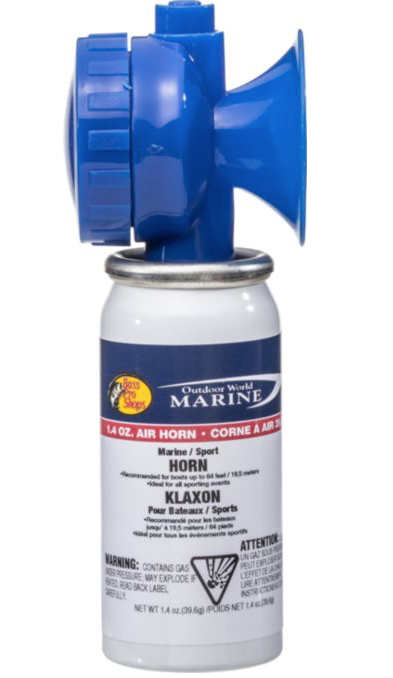


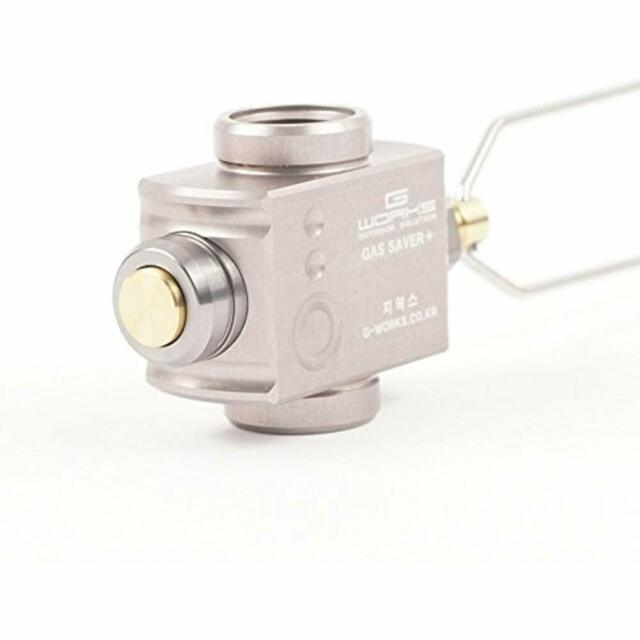
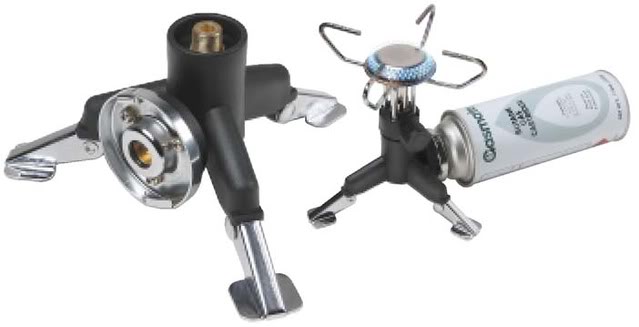

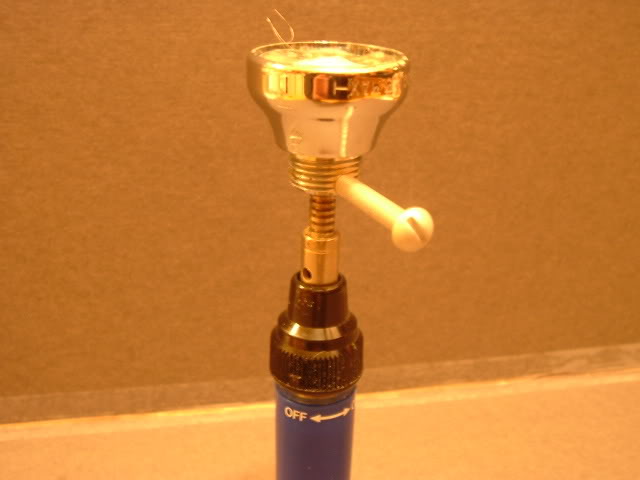

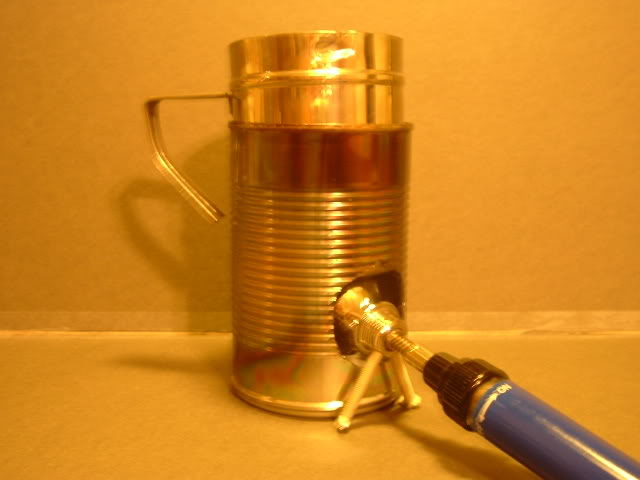
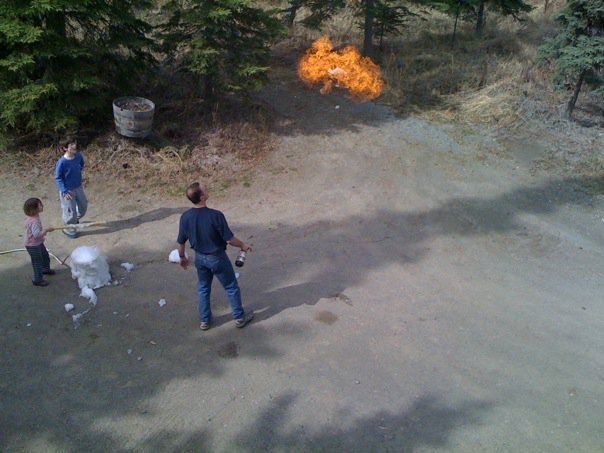 The photo is (obviously) of an ignited cloud of methane-filled soap bubbles since it floating UP. The mist of butane from an “air” horn would sink due to its higher density (and lower temperature after expansion).
The photo is (obviously) of an ignited cloud of methane-filled soap bubbles since it floating UP. The mist of butane from an “air” horn would sink due to its higher density (and lower temperature after expansion).